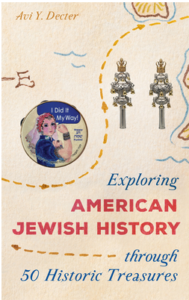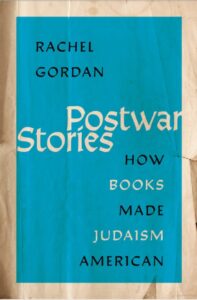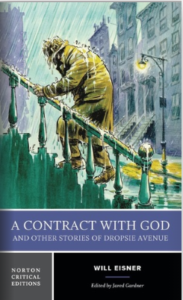
As we mark Jewish American Heritage Month in May, we reflect on the path to this recognition. The histories of Jews and the Americas have intertwined since 1492. On July 31 of that year, Spain expelled its non-Catholic subjects, and three days later Columbus departed on the voyage leading to the European “discovery” of the Western Hemisphere. However, the history of Jews in the lands that became the United States is understood to have begun only a century and a half later.
History of the celebration
In September 1654, 23 Jewish refugees reached New Amsterdam fleeing Pernambuco, the north-Brazilian colony that the Portuguese, the founders of this settlement, had recaptured not long before from the Dutch, who permitted Jews to live in their territories in Europe and the colonies alike. In the 20th century, Jewish scholarly and communal organizations highlighted the significance of this event by celebrating its second and third centenaries in 1905 and 1954–55: for them it marked the beginning of Jewish contribution to the nation. President Carter’s Proclamation No. 4752, designating Jewish American Heritage Week, recognized this contribution at the national level for the first time in April 1980. Since President George W. Bush’s proclamation designating May 2006 as Jewish American Heritage Month (JAHM), year after year, May has been the month to celebrate the contributions of Jewish Americans to the United States.
For a detailed description, please see the Library of Congress Research Guide.
For the library resources below, please note that the links here are for the Emory community to access these materials via the Emory Libraries, but members of the public can do a search for the books and films items through their local public library’s website.
New books at Emory Libraries
Four new books from 2023 and 2024 explore various aspects of the Jewish American minority experience transforming as a result of the complex socio-economic changes the US went through between the early 19th throughout the 20th century receiving much attention from scholarly and non-academic audiences alike. The stories they tell about Jewish Americans also expand on the history of the United States.
Avi Y. Decter’s “Exploring American Jewish History through 50 Historic Treasures” (Rowman & Littlefield, 2023) offers a richly illustrated material history. From object to object, whether a portrait or a poster, a peddler’s wagon or a charity box, Decter’s work helps visualizing the long narrative of Jewish history in the United States from the arrival of the first rabbi to the Americas (before the foundation of the US) in the late 17th century until 2023.
Sandra Fox’s “The Jews of Summer: Summer Camp and Jewish Culture in Postwar America” (Stanford University Press, 2023) tells the history of the Jewish summer camps in the US, an institution that aimed to ensure the survival of Jewish culture and religiosity in postwar America. Jewish summer camps also reflected the diversity of Jewish communal and individual identities and the importance of Hebrew, Yiddish, and English in defining these identities as part of the American experience.
Rachel Gordan’s “Postwar Stories: How Books Made Judaism American” (Oxford University Press, 2024) explores how by the late 1960s, books helped the American reading public accept Judaism as a religion constitutive to America, along with Protestantism and Catholicism, and Jews as a religious community (as opposed to a racialized or ethnically defined one).
Finally, “A Contract with God and Other Stories of Dropsie Avenue: Primary Texts, Eisner on the Graphic Novel and Comics, Reviews and Assessments, Criticism” (W. W. Norton & Company, Inc., 2023) is a celebration of one of the fathers of the American graphic novel, Will Eisner’s art. It contains his pioneering graphic novels first published in 1978, a collection of contemporary responses, and recent studies on the themes Eisner’s works addressed.
 |
 |
 |
 |
For readers interested in learning more about the Southern Jewish experience and particularly the history of Jews in Atlanta, the recent review article “Memoirs and Archives: Celebrating the Jews of Atlanta” Jacob Morrow-Spitzer published in Southern Jewish History recommends three recent books. Among them is the autobiography “What’s Next? Southern Dreams, Jewish Deeds and the Challenge of Looking Back while Moving Forward,” which Atlanta-born Janice Rothschild Blumberg published in 2022. A communal organizer and nationally recognized author, she is also known as the widow of Rabbi Jacob M. Rothschild—leader of the Temple community and a devoted civil rights activist, whose papers are available in Rose Library. Rothschild Blumberg recently passed away at the age of 100. Please see Emory University professor of history Eric Goldstein’s article commemorating her legacy on the website of the Tam Institute for Jewish Studies.
Films
Egg Cream, a short documentary about the famous chocolate soda, weaves together personal memories of a beloved drink and the history of Jewish immigration to the US. The drink is both a product and—to a certain extent—symbol of the modern Jewish immigrant experience in the US. This short movie is just one among the documentaries and feature films that explore Jewish contributions to the American experience.
Databases
Emory Libraries is the home of a broad variety of databases offering access to various resources, such as newspapers, communal documents, private correspondence, and more. “Jewish life in America, c1654-1954: sources from the American Jewish Historical Society, New York” opens a wide window onto Jewish American history.
Journals
Whether published by Jewish organizations, such as the Jewish Agricultural Society or the Hebrew Sheltering and Immigrant Aid Society of America, or turning to general audiences, such as the Yiddish-English פֿאָרווערט, “Forṿerṭs”, or “Forward,” Emory’s libraries hold over 80 periodical titles pertaining to the Jewish American experience.
Additional resources
Rose Library’s archival resources and rare books offer unique insights into Jewish American histories, especially in the American South. A guide for further readings on the Jewish American experience is available here.
—by Katalin Rac, Jewish Studies librarian
